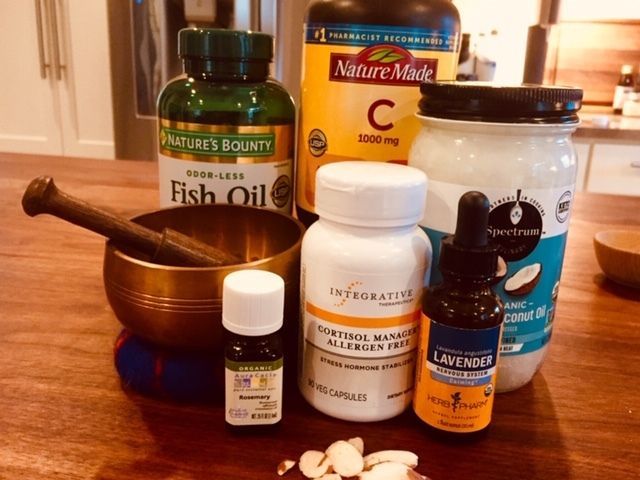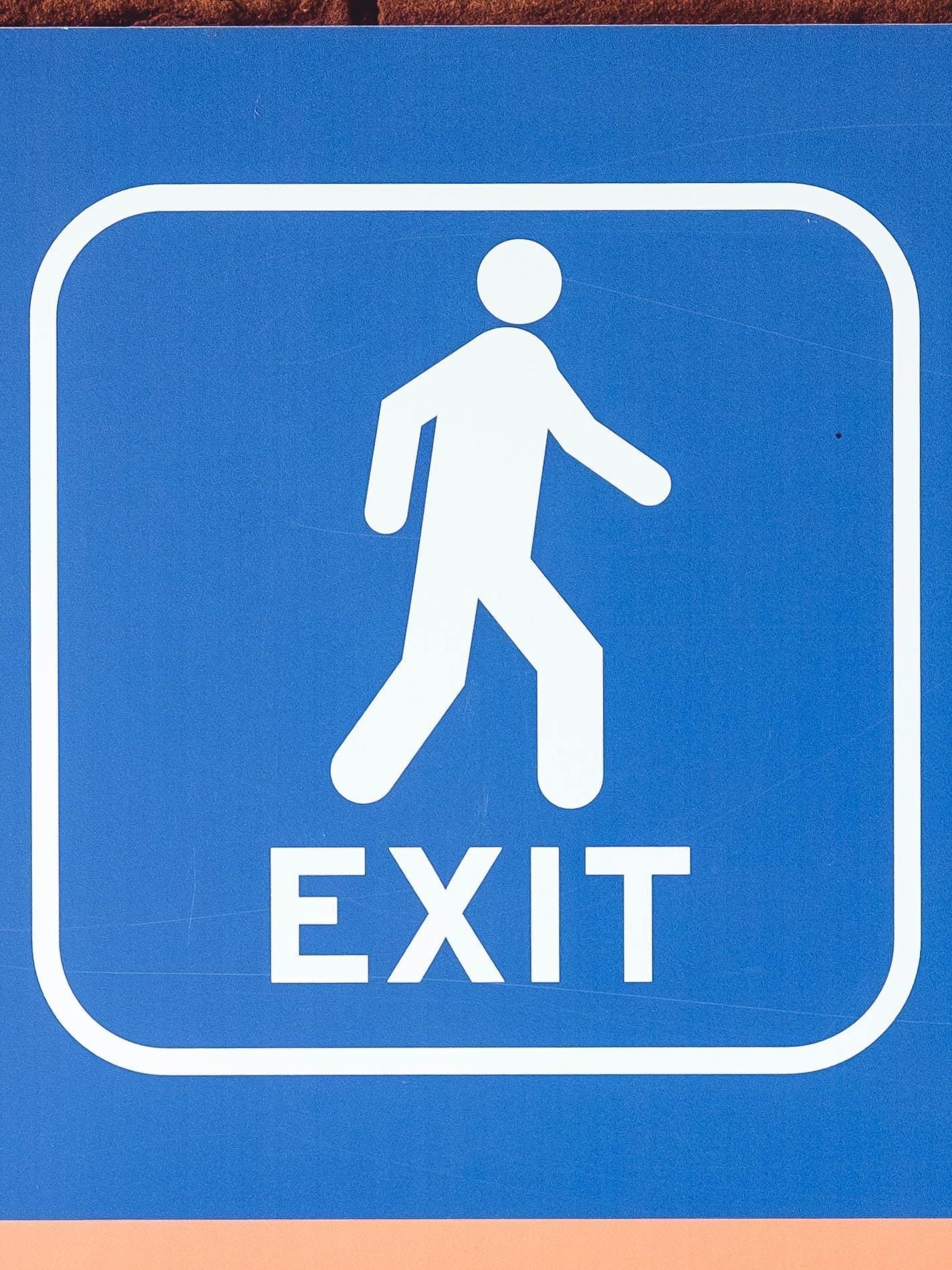
We tend to associate PTSD symptoms with war veterans or abuse victims. Okay, car accidents and natural disasters can also result in PTSD. "But certainly not just my job." "Or my mother-in-law." "What kind of a wimp gets PTSD from difficult work circumstances?" We tend to tell ourselves to "get over it" and characterize what we think of as a small stressful event as "no big deal." Especially if we're aware of the privilege we enjoy on a daily basis.
Nothing's wrong with being grateful, but let's please understand PTSD, and allow ourselves to be human. PTSD symptoms are experienced on a scale of intensity. There's war hero intensity, and there's also mom and dad divorced intensity. Neither is more or less real, more or less worthy of treatment. Work problems may be in the "low-level" of PTSD symptoms, and they could be a red flag for larger issues. But we can't treat our symptoms until we identify them.
PTSD symptoms include the following:
- sleeplessness
- hypervigilance
- nightmares
- intrusive, recurring memories
- depression
- anxiety (especially if there seems to be no logical reason for depression or anxiety in our immediate circumstances)
- avoidance
- fight, flight, or freeze response to certain stimuli
- overwhelming emotions (guilt, shame, rage, hopelessness, etc.)
- foggy thinking
- feeling of being detached or disconnected (dissociation)
Maybe you're drinking too much caffeine in the afternoon, or maybe you're experiencing PTSD.
Let's not overdiagnose ourselves, but hear me out:
Every traumatic event in our lives calls to the surface every previous traumatic event in our lives. We tend to bury our traumatic memories & the emotions tied to them deep in our subconscious, avoiding them like the Plague. But our nervous systems take over our bodies when something viscerally reminds us of the original trauma, and PTSD symptoms can arise like a flood.
That means that if you feel neglected by your boss, or abandoned by your friend, or manipulated by someone at work, these emotions could be forever tied to previous, unresolved traumas that created the same feelings. Once the PTSD is triggered, your sympathetic nervous system, spread throughout your body by the vagal nerve, takes control of your body and diverts all systems to survival mode. Regardless of "willpower" or "positive thinking," your cognitive & language skills seem to fall apart, you can't stop looking for exits from the room, your heart rate and breathing increase, and your pupils dilate. Don't judge yourself for this; it's not a moral failing. It's biology. Sometimes you can feel your body shaking; that's probably the burst of adrenalin that comes with the body's survival response. And all that happened was your mom asked if you've been gaining weight.
If comments or social situations often result in two or more of the symptoms listed above, consider that you may be having a PTSD response. Your brain is connecting something in the present with a past trauma that you haven't resolved. This is how trauma builds up throughout your life until it causes chronic health problems.
The good news is that we can resolve our traumas and calm our nervous systems. And some of the solutions are pretty simple. Let's talk about hormones.
When PTSD is triggered by an experience or situation, whether intense or mild, your body squirts out huge amounts of cortisol and adrenalin. As a result, your body is almost immediately hyperaroused and in survival mode. The frontal lobe (rational thought) of your brain goes quiet and your limbic system (survival, emotions) runs the show. That could feel different for different people; you might feel an overwhelming urge to fight, flight (escape), or freeze (mentally check out & ignore anything around you; getting sleepy all the sudden is an example).
The good news is that we can regulate our own cortisol & adrenalin! Once we recognize the state we're in, we can take some immediate actions to send our nervous systems the message that it's a false alarm, and nobody's life is in danger right now.
1. food & supplements
Add: Many foods and the nutrients they contain affect cortisol & adrenaline. For example, vitamin C in large doses (1,000 mg three times/day) tends to break down cortisol. Ashwagandha and phosphatidylserine have been shown in studies to downregulate cortisol. The supplement I use is called "Cortisol Manager" by Integrative Therapeutics. Fish oil (4g/day) reduces cortisol. Studies have shown that lavandula, found in lavender oil, and rosemary oil have been shown to calm the sympathetic nervous system and depression. I diffuse both oils when I meditate, and even wear them sometimes on my wrists or neck. Lately, I've been using a Lavandula tincture in my home-made lemonade. Lavender lemonade is delicious! Both coconut oil and almonds/almond oil increase cognitive function, which could be worn down from chronic doses of cortisol & adrenaline.
Adding these foods & supplements should be a lifestyle change as opposed to circumstantial medicine. Regular use will reduce your body's reaction to stress hormones and help your body to decrease them more quickly when triggered.
Avoid: Caffeine and alcohol seem to increase cortisol; consume them mindfully. Excess cortisol and adrenaline have been linked to slow insulin production, so watch your sugar intake as well; we want to calm that stress hormone/insulin feedback loop.
2. mindfulness
Add: Guided mindful meditation. I say guided because on our own, meditation can easily become rumination, which is harmful. Mindfulness uses our miraculous neuroplasticity (the ability of our neurons to form new connections and break ones we choose to break) to re-wire the habitual patterns of our neurons. Think of mindfulness as a non-judging and kind focus on the present moment, in your body. Specifically helpful for PTSD are body scan meditations, gratitude practices, and simply focusing on an anchor like the sensations of breathing or of your body where it contacts the floor or chair. Be discerning as you choose your meditation guide. Tara Brach, Jack Kornfield, Sebene Selassie, and Sharon Salzberg are some giants in meditation teaching; I recommend anything they guide. Start with just a few minutes of meditation regularly and slowly increase the duration.
If you feel fight/flight/freeze coming on during meditation, stop meditating immediately and ground yourself with your five senses. Later, if you still pursue mindful meditation, take tiny steps. Start with 30 seconds. Don't close your eyes, and see if that helps. Research a little about mindful meditation & PTSD. If meditation brings you to fight/flight/freeze, change your focus to mindful behaviors rather than meditation for now.
Mindful behaviors. Oxytocin is our "feel good" hormone, which also happens to reduce cortisol. Eye contact with someone we trust or safe touches, such as hugs, holding hands, or placing a hand on someone's shoulder (with consent!) give us a burst of oxytocin. Sleep helps our bodies process excess cortisol that has built up, so prioritize a good night's sleep and don't nap-shame. As you go throughout your day, ground yourself in your five senses. Really concentrate on the experiences you receive from sight, smell, sound, touch, and taste. Slow down throughout your day and mindfully observe your body moving through space, doing your daily tasks.
Avoid: self-blaming, living in the past or future (ruminating), grasping or trying to control - Each of these mental habits makes your body want to elevate cortisol & adrenaline. If you catch yourself doing any of these, DON'T JUDGE YOURSELF! Simply observe it, name it silently ("judging, judging" or "controlling, controlling" or whatever you're caught up in), and then move your focus to your physical bodily sensations right now.
Mindful interventions can work immediately, if you focus all your attention on them. They also build up more beneficial neural pathways over time.
Mindfulness and nutrition can help anyone, whether or not there is a clinical diagnosis of PTSD, so why not pick 2 or 3 of the suggestions to start integrating into your life? You might find yourself feeling more calm and safe.
Please know that I'm not a doctor or therapist. This advice comes from my research and personal experience, and is effective for only short-term management of PTSD symptoms. If your PTSD symptoms are overwhelming and interfering with your ability to function healthily, SEEK HELP FROM A PROFESSIONAL (PTSD-trained) counselor and psychiatrist. As soon as you can. Check out our website for guidance in finding the right professional help. Unresolved PTSD snowballs until it takes over your life. Therapy is the way to resolve it once & for all. If money is an issue and you live in the New Orleans area, please go to "Find Help" and complete our Counseling Scholarship Application Form.
Love,
Michelle
Resources
The Body Keeps the Score, by Bessel Van Der Kolk, M.D.
Botanical Medicine for Women's Health, by Aviva Romm, M.D.
The Hormone Cure, by Sara Gottfried, M.D.









